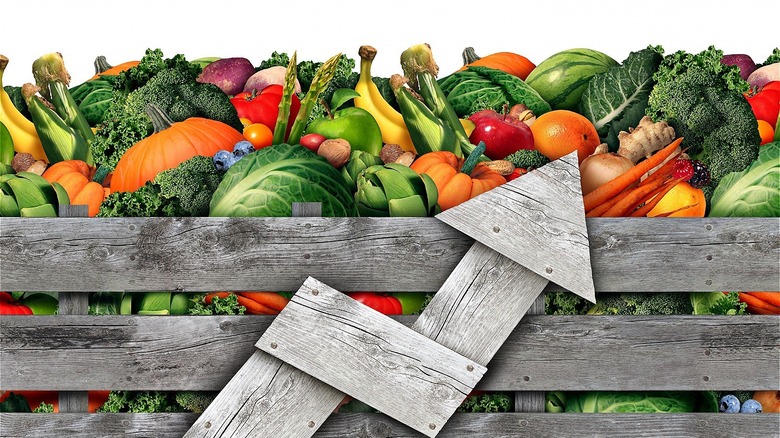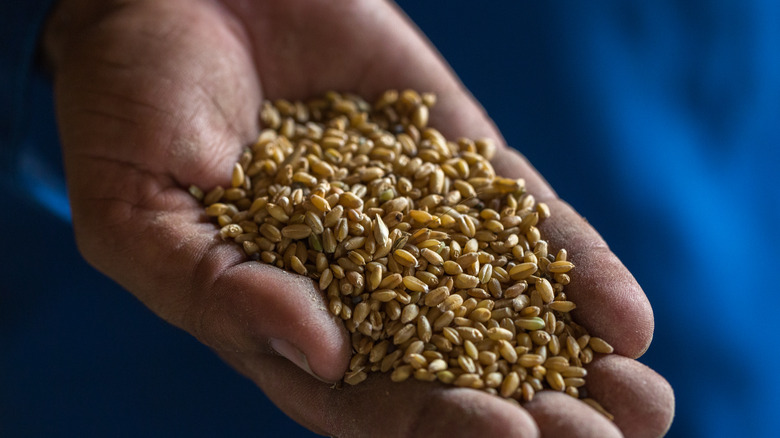Why Hot Temperatures Are Making Food Inflation Even Worse
While we know summers are meant to be hot, few of us probably expected summer 2022 to be this drastic. All over the world, heat records are being broken in places ill-equipped to deal with soaring temperatures. Areas like the English village of Coningsby clocked 104.5F, which broke Britain's national heat record by 2.9 degrees, per The Washington Post. Across the English Channel, The Wall Street Journal noted that the latest heatwave triggered not just record-breaking temperatures, but wildfires, too.
Europe isn't the only place where records are being smashed, either. In Asia, China saw roofs melt and people hide out in underground air-raid shelters where temperatures were cooler, per Grist. In Japan, people soldiered through what the BBC called "the worst streak of hot weather" for the month of June in nearly 150 years. And we have not even looked at India and Pakistan, which saw the hottest, driest heatwave experienced since officials began keeping records more than a century ago, per World Economic Forum.
It's no surprise, then, that the UN's Intergovernmental Panel on Climate Change said in an April report that — again — temperatures will go beyond a danger point until something changes, per CBC. UN Secretary General Antonio Guterres called the report "a litany of broken climate promises" by governments and corporations. And food inflation continues to demonstrate the direct effects of this truth.
Heat waves may have impacted future harvests
Unfortunately, our food supplies are very deeply tied to the weather, since most of what we eat is grown or raised. So when we get record-breaking temperatures like we've seen throughout summer 2022, it's safe to say we can expect our food supply chain to become more stressed.
Per Grist, Japan's weather bureau has already raised a red flag with regard to its corn and soy yields. India's devastating heatwave caused the country to suspend wheat exports, further compromising grain supplies, which were already hurt by Russia's moves against Ukraine. Closer to home, ABC30 reported the deaths of more than 2,000 heads of cattle in Kansas thanks to heat stress. Author Bob Keefe told Grist, "We all know our grocery bills are going up. Part of the reason is that when you lose crops to storms or drought or flooding, prices are going to go up."
France 24 says agriculture experts are already bracing themselves for what's to come, because the true impact of what they're calling "heatflation" won't be felt for at least four to six months. And, unfortunately, it's a hit the world cannot afford. Chatham House Director of the Environment and Society Tim Benton said, "We are in a food, energy and cost-of-living crisis, created by COVID-19, exacerbated by Russia's invasion of Ukraine. In a disrupted market — where demand globally is exceeding supply — any loss of harvest does not help prices."
Sadly, that loss of harvest could be just around the corner.

